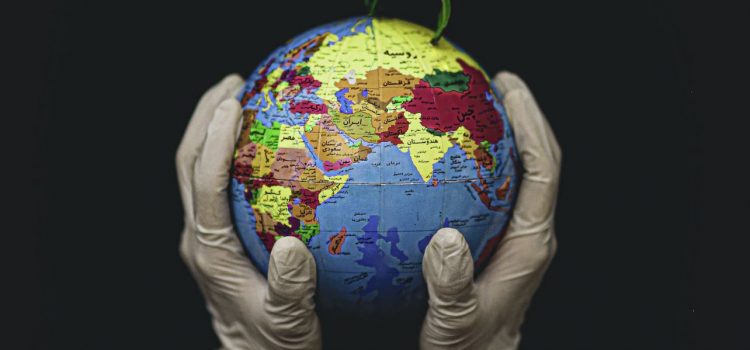
This is a free excerpt from one of Shortform’s Articles. We give you all the important information you need to know about current events and more.
Don't miss out on the whole story. Sign up for a free trial here .
Why was Earth Day first created? What’s the purpose of Earth Day?
This weekend the world celebrates the 53rd annual Earth Day. The theme, “Invest in Our Planet,” focuses on the responsibility of governments, businesses, and other social institutions to act sustainably. It’s drawing particular attention to the harms of fossil fuels.
Below, we’ll take a look at the history of Earth Day and why it still matters today.
Earth Day Celebrates 53 Years
This weekend the world celebrates the 53rd annual Earth Day. Citizens around the globe will gather to promote awareness of environmental issues and to celebrate the natural world. The day is marked by various activities such as clean-up drives, tree planting, music and art, and public education campaigns. But what is the purpose of Earth Day, where did Earth Day come from, and what impact does it have on the world?
A Brief History of Earth Day
Earth Day dates back to 1970 when it was first proposed by US Sen. Gaylord Nelson of Wisconsin, who was concerned about environmental issues, including a devastating 1969 oil spill in California. Nelson was inspired by some of the anti-Vietnam War organizing happening in the country, and he aimed to garner that kind of enthusiasm for environmental protection. A widespread publicity campaign led to an estimated 20 million Americans gathering in most major cities across the country for the first Earth Day.
The success of that first annual Earth Day helped inspire the creation of the US Environmental Protection Agency and the passage of other environmental policies, including the Clean Water Act (1972) and the Endangered Species Act (1973).
Since then, Earth Day has grown into a global event. By 1990, an estimated 200 million people in over 140 countries participated, and this year more than a billion people and most of the world’s countries are involved. The theme of Earth Day changes every year, often centered on a specific environmental issue, such as climate change, plastic pollution, or deforestation.
Earth Day 2023
The theme of Earth Day 2023 is “Invest in Our Planet,” which centers on the intersection of the environment and the economy. This is an attempt to focus attention on the responsibility of governments, businesses, and other social institutions to act sustainably. Last month, protests against “dirty banks” set the stage for the theme. These were aimed at exposing some of the world’s largest financial institutions for funding the fossil fuel industry. This weekend features many more rallies and marches organized around this theme.
In Washington, D.C. protestors are gathering in Freedom Plaza and marching to the White House in a rally to end the era of fossil fuels. American citizens are calling on the Biden administration to hold true to its pledge to work toward “a 100% clean electrical grid by 2035, with net zero carbon emissions by 2050.”
Beyond just protest rallies, Earth Day events around the world include public clean-ups, teach-ins, street fairs, concerts, film and theater festivals, art exhibitions, and prayer and meditation sessions.
Why Earth Day Still Matters
If millions of people thought environmental concerns warranted so much attention in 1970, those concerns have amplified exponentially since then. Experts are warning of accelerated climate change with potentially catastrophic consequences, and developed nations are seeing some trends in physical and mental health associated with disconnection from nature.
Climate Crisis Is Upon Us
Currently, 99% of scientists agree that human-caused climate change is happening, an idea that was controversial even in the scientific community just a few decades ago. Climate change experts have said that if the global average temperature surpasses a 1.5-degree Celsius warming, we’ll start to see catastrophic flooding, heat waves, droughts, and severe freshwater shortages. In response to this, the world’s biggest polluters—the US and China top the list—have committed to reducing carbon emissions, with goals of net zero emissions by 2050-2060.
Physical and Mental Health
In addition to direct environmental consequences, the modern world’s dysfunctional relationship with nature is causing us physical and mental health problems. Philosopher Glenn Albrecht coined the term solastalgia to refer to a condition of psychological distress caused by the destruction of one’s natural environment. He says more people are experiencing this due to ecological damage to their homelands. And psychologists are increasingly recognizing the impact the climate crisis is having particularly on young people, who feel fear and uncertainty about the future.
Another way our relationship with nature is affecting our health is through the loss of connection to nature characteristic of life in industrial societies. A 2005 book by journalist Richard Louv identifies what he calls “Nature-Deficit Disorder” as a condition affecting citizens of the modern world, particularly those who live in urban areas. And scholars in the field of ecopsychology affirm that loss of connection to nature does indeed negatively impact our health. They say nearly 1,000 studies suggest that spending more time in nature contributes to better health—both mental and physical. It lowers blood pressure, calms the nervous system, reduces anxiety, and improves mood. Some health care providers are being trained to prescribe time in nature to patients with certain health conditions.
Speaking to the United Nations in the 1970s, the anthropologist Margaret Mead said, “Earth Day is the first holy day that is going to be celebrated by the whole world…this is the first time that we have a day that is suited to all the people in the world…it marks one step further in establishing a planetary community.”

Want to fast-track your learning? With Shortform, you’ll gain insights you won't find anywhere else .
Here's what you’ll get when you sign up for Shortform :
- Complicated ideas explained in simple and concise ways
- Smart analysis that connects what you’re reading to other key concepts
- Writing with zero fluff because we know how important your time is






